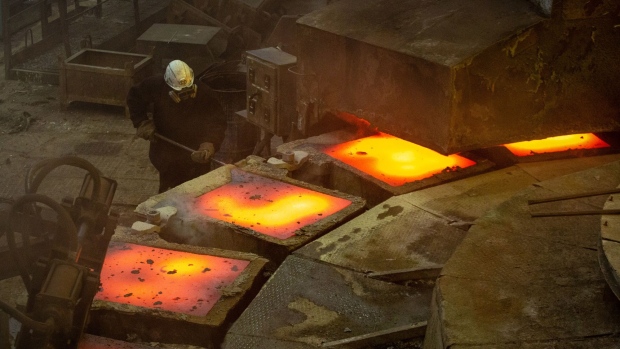Mar 18, 2022
LME’s Copper Industry Group Recommends Banning Russian Metal
, Bloomberg News

(Bloomberg) -- The London Metal Exchange’s copper committee recommended banning new supplies of Russian metal from the bourse, according to people familiar with the matter, a move which would send shockwaves through the market if implemented.
The committee, which only plays an advisory role at the LME, voted overwhelmingly on Friday to recommend that the exchange should not allow new deliveries of Russian copper into its warehouses, the people said, asking not to be identified as the discussion wasn’t public.
The exchange said it’s monitoring developments related to Russian sanctions closely but doesn’t currently plan to take any independent action such as placing restrictions on the circulation of metal produced by Russia in the LME system.
“The impact of taking such steps would not be limited solely to the LME’s business but would extend to all those participating in the global market,” it said in a statement. “Our priority is to maintain an orderly market for the benefit of all market participants, and we will, therefore, keep this decision under constant review as the situation develops.”
The LME declined to comment on the copper committee’s discussions.
The LME has previously said that it would “respond swiftly” if any producer of metal registered on the exchange were to be placed under sanctions. So far, however, while some buyers of metals are avoiding Russian supplies, the U.S. and Europe have not placed sanctions on major Russian metal producers.
Russia is the world’s seventh-largest copper producer, accounting for about 4% of global production. But its role on the London Metal Exchange is more significant, since it is the third-largest exporter of refined copper metal, the form deliverable on the exchange, after Chile and Japan.
Metal from Russian producers like MMC Norilsk Nickel PJSC and Ural Mining and Metallurgical Co OJSC has historically represented a meaningful share of the copper in LME warehouses.
The global copper market is already tight, with exchange stocks close to a 16-year low. Prices touched a record high of $10,845 a ton last week, but have retreated about 6% since then.
©2022 Bloomberg L.P.






